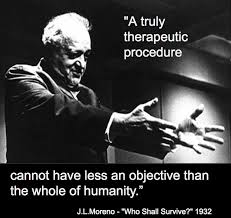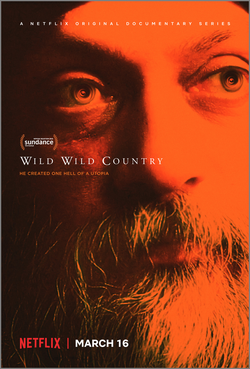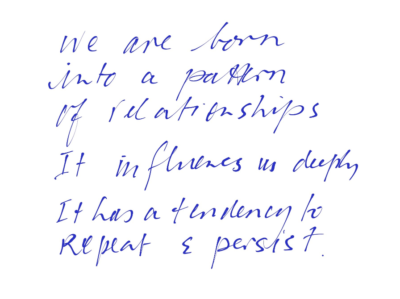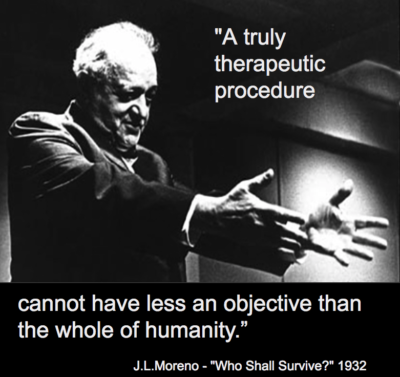I am a psychodramatist and hence a student of the work of J.L. Moreno. And I hold his philosophy and methods to be revolutionary in the sense of having potential to heal humanity. There is an area of his philosophy and outlook where he comes short of the potential, it is in the conception of mass action and the macro forces that operate in the world. He lacks a good grasp of Marxism. And I think Marxism lacks the science of sociometry, the outlook of small groups.
Continue reading “The Moment in History”
Identity politics
Mistaken Identity by Asad Haider review – the best criticism of identity politics
I found this review of the book by Asad Haider satisfying — despite the title of the book, and the title of the review, I don’t think he just criticises identity politics. Haider defends a strand of it and criticises another and makes the distinction quite clear. Continue reading “Identity politics”
The Map is not the Territory
Structural Differential — Alfred Korzybski.
Podcast
#278: Tim O’Reilly – The Trend Spotter The Tim Ferriss Show podcast
Tim O’Reilly: Let me go back to George Simon because a lot of what he taught was a kind of mental discipline that was rooted in a model of how consciousness happens. It was framed somewhat in the language of Alfred Korzybski’s general semantics. Korzybski drew this wonderful diagram – it was actually a tool he used to train people – that he called the structural differential.
Korzybski’s fundamental idea was that people are stuck in language, but language is about something. And so, he represented what he called the process of abstraction so that people could ask themselves, “Where am I in that process?” So, the first part of the structural differential was a parabola, and the reason why it was a parabola is because reality is infinite, but we can’t take in all of reality.
And so, hanging from the parabola was a circle, and the circle was our experience, which is our first abstraction from reality. And then, hanging from the circle are a bunch of label-shaped tags – multiple strings of them – and these are the words that we use to describe our experience.
Korzybski’s training was for people to recognize when they were in the words, when they were in the experience, and when they were open to the reality. George mixed that in with this work of Sri Aurobindo, who was an Indian sage, and had come up with a model that integrated a spiritual view of this, and a practice which was just listening and being open to the unknown.
The Structure of Therapy.
In his Poetics, the Greek philosopher Aristotle put forth the idea the play should imitate a single whole action. “A whole is what has a beginning and middle and end” (1450b27).[1] He split the play into two parts: complication and unravelling.
From wikipedia: https://en.wikipedia.org/wiki/Dramatic_structure
Just like therapy!
What is the universe up to?
On the first day of training in Imago therapy Maya Kollman characterised a couple relationship as “A microcosm of the universe trying to repair itself.” In different words psychodrama includes the same idea, the therapeutic tele is distributed in the group, it’s not just in the director.
And there is qualitative evidence for this… A group, or a couple, once the connection is established and there is a warm up, will hum its way to more and more enabling solutions. I see it so clearly in psychodrama groups – each drama assists the whole group in a quest that is finally resolved. The terminology of ‘disturbing motive’ and ‘reactive fear’ is used to describe this process. Even this naming implies that it is the ‘disturbing motive’ that arises first and the the ‘reactive fear’ is simply the obstacles of the cultural conserve (CC) that need to get out of the way. CC is a term from the psychodramatic theory Canon of Creativity
An earlier post grapples with the same idea. https://psyberspace.walterlogeman.com/2018/the-survival-dance-that-gets-in-the-way-of-the-encounter/
There is a layer of conserved coping that is somehow “man made”, the reactive fear, which is usually followed by flight or fight i.e. Criticism and blaming or avoidance. There is another layer – the universe trying to heal itself. Lets just call it eros or love. Gt the crap out of the way and the love will come through.
Both psychodrama and Imago have the philosophy that the therapist is the catalyst, simply providing tools, like dialogue, or the 5 instruments so the eros can emerge.
I’m reflecting on the relationship between letting it happen and making it happen.
The inevitable can be helped along.
We are agents in the healing of the universe. i.e. in its progress. Towards eros.
We can make it worse or better. If this is a dead end it will proceed towards the omega point in some other way. The universe does not care, but it won’t stop its evolution, its development, its progress. These words are teleological.
We make history but under conditions of our choosing.
Surfing. We can but catch a wave or miss it.
Anyway, if we assume that a group or a couple is “A microcosm of the universe trying to repair itself.” then we are assistants to that process.
Thats what Marxists are too.
Strange that the right who advocate market forces somehow believe in the benign power of the market. Leave alone. Marxists might trust the market too if it was alive in a society that was free of the distortions of the capitalists. It would tend towards each to his needs. Just like in couple therapy – in my room I have to be a strong dictatorship of the eros forces. We fight the cultural conserves (part of the current cultural forces) of blame – attack and control.
See more search the Tag – theory of change https://psyberspace.walterlogeman.com/tag/theory-of-change/
The Survival Dance that gets in the way of the Encounter
We flee or fight to avoid pain. In psychodrama we call those ways of being the coping roles. The path to the progressive, being fully alive, is to be with the vulnerability of the pain and attend to it. This can’t really be done alone, yet no-one can do it for you.
This is a universal idea and present in many modalities.
*
The title of this post comes from Hedy Schleifer’s ECcT – Encounter Centred Couple Therapy. On her website she says:
“I want them to leave knowing that the “survival dance’ that they have been dancing for such a long time is “not’ who they are in their essence.”
Continue reading “The Survival Dance that gets in the way of the Encounter”
Osho
We binge watched Wild Wild Country with great interest.
I have been intrigued by Bagwhan since the 1980s. I went quite a few workshops in Freemantle, Western Australia… but never drank the cool-aid. No orange or mala. I knew there was controversy in Oregon. Just how awful it was is news to me. What went wrong? Guns for one thing. I hated that turn of events. Sheila?
I watched a short Osho video on YouTube and saw it clearly… Bagwhan is not really the problem as a person either… it is his philosophy!
What a lovely response to the journalists question “what is the purpose of all this?” Anything that has a purpose is mundane. His answer is really an deep reflection on ends and means. The philosopher shines thorough.
But there is an ugly side. He becomes a little scathing of the questioner. He is not “one of my people”. He is an outsider. And there it is, disdain for outsiders. With all the ‘enlightenment’ they could not relate to 50 locals. They took over that town in an arrogant way akin to the way those people had taken it from the native Americans. If they are not “my people” then they are not people at all.
That is the lesson for me in the whole thing… I know I can have that sort of disdain.
Couple and family therapy – Interpsyche
Here is a quote from Moreno that has major implications for how we conduct psychodrama in groups or with individuals when they want to work on significant relationships and the other party is not present. Can we trust their representation?
Can a person in a couple relationship role reverse with their partner?
In a group can someone do a drama involving an intimate other who is not there?
These are questions I will be exploring in action with colleagues. in a workshop at the AANZPA conference in Brisbane in January.
Marriage and family therapy for instance, has to be so conducted that the “interpsyche” of the entire group is re-enacted so that all their tele-relations, their co-conscious and co-unconscious states are brought to life. Co-conscious and co-unconscious states are by definition such states which the partners have experienced and produced jointly and which can therefore be only jointly reproduced or re-enacted. A co-conscious or a co-unconscious state can not be the property of one individual only. It is always a common property and cannot be reproduced but by a combined effort. If a re-enactment of such co-conscious or co-unconscious state is desired or necessary, that re-enactment has to take place with the help of all partners involved in the episode. The logical method of such re-enactment a deux is psychodrama. However great a genius of perception one partner of the ensemble might have, he or she can not produce that episode alone because they have in common their co-conscious and co-unconscious states which are the matrix from which they drew their inspiration and knowledge.
Psychodrama Volume 1, 4th edition, page vii
In short…
Couple and family therapy has to be so conducted that the “interpsyche” of the entire group is re-enacted so that all their tele-relations, their co-conscious and co-unconscious states are brought to life. Thus the interpsyche involves states which the partners produced jointly and which can therefore be only jointly reproduced, by a combined effort. The logical method to re-enact an episode in the life of a couple is psychodrama. However great a genius of perception one partner may be, he or she can not produce that episode alone because they have in common their co-conscious and co-unconscious states which are the matrix from which they draw their inspiration and knowledge.
The logical method of such re-enactment a deux is psychodrama.
Later — Friday, 22 December, 2017
Just noticed this quote fro Marshall Rosenberg:
It may be most difficult to empathize with those we are closest to.
Moreno was not alone in noticing this phenomena
Who we are
This is my summary of what Moreno means by the social atom. In psychotherapy that “atom” or pattern is the client. When two of these “patterns” connect in love, then a lifelong process can follow. Maybe it is true love at first sight? Unlikely, love is blind. One possibility is to move from blind love to deep mature connection. The other possibility is hell. A third is lifeless boredom.
What is Psychodrama?
Psychodrama is a form of therapy. Jacob Levi Moreno founded the the early forms of the philosophy and practice in Vienna early in the last century. On page one of his seminal book: “Who Shall Survive?” he wrote about a therapeutic procedure.
Clearly a therapeutic procedure that has as its objective the whole of humankind stands out as a special case of psychotherapy. Psychodrama is a special case…
Continue reading “What is Psychodrama?”





